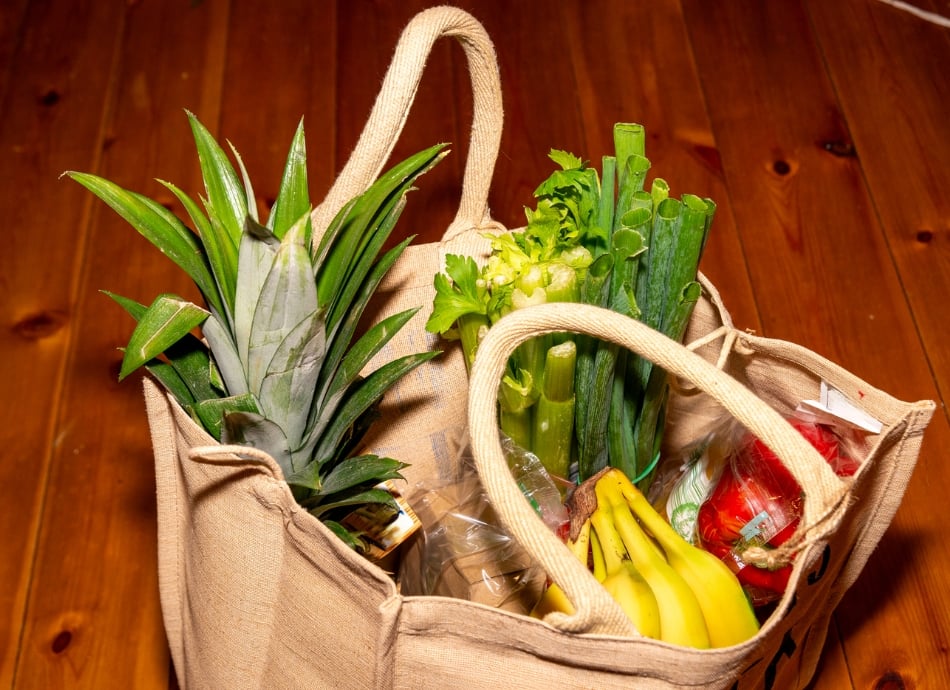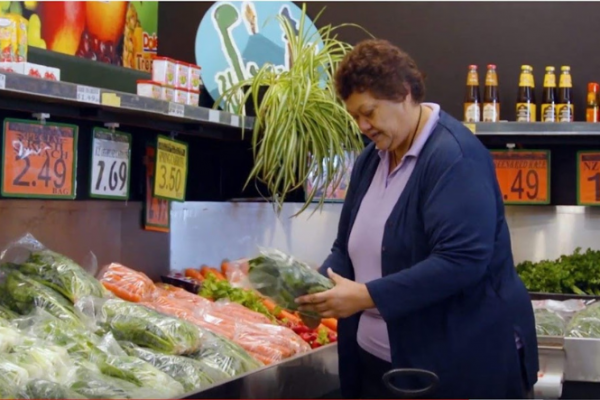You can now add Healthify as a preferred source on Google. Click here to see us when you search Google.
Keeping kai on the table
When it's hard to feed your family
Key points about keeping kai on the table
- Rising prices are making it harder for people to feed themselves and their families.
- Luckily, there are lots of services that can help out if you’re struggling.

This video was created when COVID restrictions made it harder to source food, however much of the information is still relevant.
Aotearoa New Zealand has no shortage of kai/food. In fact, we produce food for 40 million people but we do have problems with food insecurity. 1 in 5 people experience food insecurity, and approximately 1 million people worry about where their next meal will be coming from.
Food insecurity has increased by more than 6% in the past 9 years.
Food insecurity means not having reliable access to enough safe and nutritious food that meets personal and cultural needs. In practical terms, it means:
- going hungry
- not having enough to eat
- running out of food with no money to buy more
- having to choose less nutritious, cheap options to fill up
- parents going without so their tamariki can eat
- living with the stress of constantly worrying about having enough food to feed your whānau.

Image credit: Healthify He Puna Waiora, NZ
Around the world, food insecurity results from many things. These include war, when supplies of food are disrupted, and climate change which also disrupts food supplies when extreme weather events cause crop failures. COVID-19 caused problems with the production and distribution of food.
In Aotearoa New Zealand, access to good and affordable kai is connected to income, and some groups suffer more than others. Whānau living on lower incomes are more likely to have problems finding good, affordable food and those on benefits struggle even more. It has always been a problem in our communities, but it got worse due to COVID-19 and the associated job losses and rising costs of living. It's estimated to cost between $29 and $74 a week to feed a person, depending on their age and sex.
According to the Commerce Commission, it's estimated that at least 15 to 20% of New Zealand’s population is food insecure, with women, people with disabilities, and Māori communities and Pacific Peoples most affected.
Food insecurity is not just about going hungry, it's also a major barrier to healthy eating. It forces people to fill up on cheap and highly processed food which costs about a third less than nutritious food. Over time, eating unhealthy food increases your risk of developing long-term conditions, such as obesity, diabetes, heart disease and some cancers.
Access to good food is especially important for your tamariki/children. Without adequate nutrition there can be problems with their growth and development, which can lead to health and education problems. These might include child obesity, asthma, poor academic performance, and developmental and behavioural issues.
Parents of children who live with food insecurity have additional hardships. They often go without food themselves to feed their children and experience stress, shame and psychological distress about not being able to feed their whānau.
Reach out to your whānau who may know where you can go to get awhi manaaki. There are places you can contact to get help:
National organisations
The New Zealand Foodbank Directory(external link)
You can find and contact your local food bank to make an appointment or arrange delivery of a food parcel if you need food assistance.
Family Services Directory(external link)
Provides a list or organisations providing food services around the country. Enter your area and click on community food initiatives and foodbanks and parcels to see what's available near you.
Paerangi(external link)
Paerangi offers many useful options for links to kai and food banks with the additional option of selecting the information in te reo Māori or New Zealand sign language. Various support locations across New Zealand.
The Salvation Army(external link)
The Salvation Army provides emergency food and clothing, advocacy, referral, court support services and financial mentoring. Their mentors work with individuals or with whānau to provide coaching. They can draw up spending and saving plans, talk to creditors and provide advocacy to government agencies. Phone: 0800 53 00 00 or look at their Facebook page(external link). There's also a map and list of locations(external link).
Pātaka Kai Open Street Pantries(external link)
The Pātaka Kai Open Street Pantry Movement is a resident led, grassroots, crowd sourced solution to immediate and local need, rescuing food and encouraging the co-sharing between neighbours to strengthen communities. Email: [email protected] or see their Facebook(external link) page for more information. You can find locations for community gardens and pataka kai cupboards on their interactive map(external link). Note the map doesn't have a key so look for the shopping cart symbol for places you can get free food and the coloured drop markers for food foraging sites.
Work and Income (WINZ)(external link)
Work and Income is a service of the Ministry of Social Development (MSD) and delivers support and employment services to New Zealanders. Phone: 0800 559 009 or see their Facebook(external link) page.
Money Talks(external link)
Money Talks is a free service available to all. It connects people and whānau with their local foodbanks, helps them find their way through Work and Income processes and entitlements, and supports people to manage their money and debt. Phone: 0800 345 123. Email: [email protected]
Zero Hunger(external link)
A list of various locations nationally that provide food assistance to whānau.
Regional organisations
Foodbanks – Northland(external link)
Various locations in Northland that can support with food parcels. Please see the website for the list and contact details.
The Auckland City Mission(external link)
The Mission provides immediate assistance, such as food, clothing and bedding. Staff also work with individuals or families to find workable, long-term solutions to the issues they face. Address: 23 Union Street, Auckland Central. Phone: (09) 303 9200. Email: [email protected]
West Auckland(external link)
The link provides many options for food and emergency support in West Auckland
(external link)
Vision West Community Trust – Auckland(external link)
VisionWest provides comprehensive wrap-around services, including emergency food support, numeracy and literacy education, one to one support with transition into further education and/or employment. They also offer housing support and financial guidance as well as youth coaching and mentoring for eligible youth. Address: 97 Glendale Road, Glen Eden, Auckland 0602. Phone: (09) 818 0700. Email: [email protected]
Papakura Marae – Auckland(external link)
Papakura Marae provides a food and clothing bank and whānau ora services. Address: 29 Hunua Road, Papakura, Auckland 2110. Phone: 0800 826 274 press 2
Beneficiaries Advocacy and Information Service (BAIS) – Auckland(external link)
BAIS provides free, independent, professional information and advocacy to beneficiaries and low income families on their financial entitlements with WINZ and IRD. BAIS operates on the North Shore and in Rodney. Phone: (09) 444 9543. Email: [email protected]
Christians Against Poverty – Auckland(external link)
The main service provided by CAP is debt counselling. CAP work alongside clients who cannot afford the essentials of life, such as food, due to unmanageable levels of debt. Coaches visit people in their homes to assist with debt management. CAP Debt Help also offers a CAP Money course. This 3 session course helps people learn how to build and maintain a sustainable budget. Their services are offered through their local church partners and are free and available to all. 55 Hugo Johnston Dr, Penrose. Phone: 0508 227 111. Email: [email protected]
Combined Beneficiaries Union (CBU) – Auckland(external link)
The Combined Beneficiaries Union can provide free advocacy services to beneficiaries, to ensure they receive their entitlements from the Ministry of Social Development / Work and Income. If you have issues regarding your benefit you can contact CBU who can talk to Work and Income on your behalf if your give them signed authority. Address: 147–153 Great North Road, Newton, Auckland 1021. Phone: (09) 376 4760. Email: [email protected]
Society of Saint Vincent de Paul – Auckland(external link)
Food parcel support available via self-referral online form in English, Samoan, Tongan and Cook Island.
Kaibosh – Wellington(external link)
List of organisations providing food assistance in Pōneke (Wellington), Hutt Valley and Paraparaumu. Please phone ahead to check open days and times.
The Free Store – Wellington(external link)
They freely redistribute fresh surplus food from Wellington's eateries directly to those in need of it. Everyone is welcome. Open weekdays from 5.15pm. Tea, coffee and soup served from 5.15, the store opens at 5.45pm.
Kai Collective – Tasman(external link)
A group of Moutere and Mapua locals who help to feed and support families in the wider communities, by providing simple home-cooked meals. Lovingly created meals, are available from publicly accessible freezers for people to come and collect and gift on to those in need of a little help and support. Freezers are located at: The Moutere Hills Community Centre – in the foyer, Country Kids Child Care, The Mapua Hall – in the back hall, Mapua School and Delicious at Mapua wharf.
Bellyful Nelson(external link)
Bellyful provides up to three nights of meals to whānau with babies or children under 12 who are facing challenges such as illness, bereavement, stress, isolation, pregnancy, miscarriage, or baby loss – regardless of financial situation. We help families without a support network. Our meals are generously cooked and delivered by volunteers, who will do their best to be in touch within 5 working days.
Tahunanui Community Hub – Nelson(external link)
Food Parcels are available to families and individuals experiencing hardship in Nelson. Food parcels are accessed through one of the participating agencies listed.
North Canterbury Trust(external link)
Food parcel support with no referral needed, request a food parcel: 0800 88 34 88, Email on [email protected]
Christchurch City Mission(external link)
There are 2 ways to access food – a pre-packed parcel, or a shop through the self-serve foodbank - Pou Manaaki. All food parcel pick-ups and Pou Manaaki shops must have a pre-booked appointment time. An appointment can be organised by phoning 03 365 0635 or 0800 787 855 between 9am and 3pm, Monday to Friday (press 1).
Our Food Network – Dunedin(external link)
Interactive map to access low cost food and free food sources.
References
- Who's eating New Zealand?(external link) Radio NZ, 2021(external link)
- Food insecurity(external link) Child and Youth Wellbeing, NZ, 2020(external link)
- Shining the light on food insecurity in Aotearoa – Auckland City Mission's call to action(external link) Auckland City Mission, NZ, 2019(external link)
- Food insecurity(external link) Child Poverty Action Group, NZ, 2020(external link)
- Child poverty related indicators(external link) New Zealand Government, 2020(external link)
- Food insecurity New Zealand(external link) Borgen Project, US, 2020
- Carter KN, Lanumata T, Kruse K, Gorton D. What are the determinants of food insecurity in New Zealand and does this differ for males and females?(external link) Aus NZ J Public Health, 2010(external link)
- Submission on market study into grocery sector(external link) Kore Hiakai Hunger Collective, NZ, 2021
- Around the world food security is improving. In New Zealand, it is getting worse(external link) The Spinoff, NZ, 2024
- Grocery sector report(external link) The Commission Commerce, NZ, 2021
Credits: Healthify editorial team. Healthify is brought to you by Health Navigator Charitable Trust.
Reviewed by: Roselyn Singh, Health Coach, Auckland
Last reviewed:





